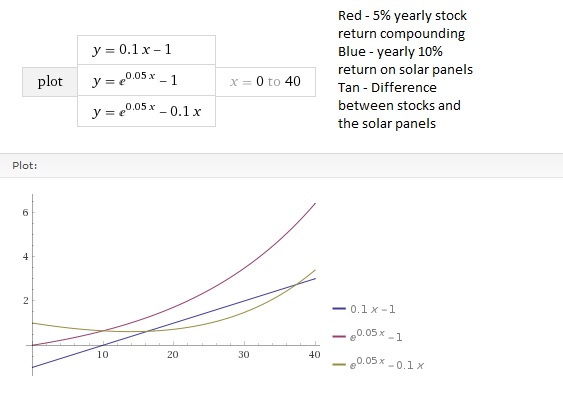- Joined
- Sep 9, 2007
- Messages
- 10,620
- Reaction score
- 3,892
Hopefully they've paid off the right people through the years
If they want to leave it in private hands then they need to let it fail when it fails, and do something to attach executive liability. Corporate personhood is utter insanity.If we want are system to work big business have to be allowed to fail. This notion that companies will get bailed out if they make mistakes incentives companies to take unnecessary risks.
It's ok they can just pass the charges for violations into their customers now.

PG&E Company (the utility, not the holding company) entered bankruptcy under Chapter 11 on April 6, 2001. The state of California tried to bail out the utility and provide power to PG&E's 5.1 million customers under the same rules that required the state to buy electricity at market rate high cost to meet demand and sell it at lower fixed price, and as a result, the state also lost significant amounts of money.
The crisis cost PG&E and the state somewhere between $40 and $45 billion.[56] There is some evidence that this crisis played an important part in the eventual recall of California Governor Gray Davis.
PG&E Company, the utility, emerged from bankruptcy in April 2004, after paying $10.2 billion to its hundreds of creditors. As part of the reorganization, PG&E's 5.1 million electricity customers will have to pay above-market prices for several years to cancel the debt.
I'd be on board with that. I think the federal government should've nationalized the banks that got bailed out back in 2008 honestly. Wouldn't even have to be long term, give the banks the opportunity to buy back their shares in the long run as perhaps Cali should do here.California is communist enough, this sounds like an opportunity for the state to take over the company to keep it running and boot out all the execs and fine them and it would actually have public support
California is communist enough, this sounds like an opportunity for the state to take over the company to keep it running and boot out all the execs and fine them and it would actually have public support
Sue them. Let them go bankrupt. The State can buy the assets and continue operation.
Too big to fail is a horrible concept for taxpayers. It basically allows a business to avoid consequences for negligence or mismanagement of resources.
That's interesting. They're not bailing them out and they're not clearing them of liability. They're trying to avoid bankruptcy and the disruption that would follow because it would negatively impact millions of CA residents who have nothing to do with the underlying fire issue.
Tough position to be in as a legislature. Do nothing and screw over the general CA resident or do something and look like you're playing corporate favoritism.
Still, based on the limited amount of information provided in the OP, I think they're moving in the right direction. Also, probably a good sign that this needs to become a state utility.
PG&E is a shit utility Roof top residential solar can compete with utility generation because of how messed up everything is in California. Electricity cost about half per kwh in the rest of the country. The Californian PUC is to blame, too. Generation is being built like mad there due to the PUC guaranteeing a rate of return even if it doesn't generate power. This is in response to capacity issues a few years back. 7% capacity reserve is bare bones. 9% is usually considered enough. California is coming up on 13% capacity reserve margin. The Californian PUC doesn't prioritize cheap electricity. But back to the first statement, think how messed up a utility has to be to have to compete against Joe Public putting up solar panes on his roof?
People in Australia save money by installing solar, guy I work with spent about 5k on the system and saved $600 in the first 3 month's. It was summer but even if it generates nothing for 9 months of the year it's a fucking great investment even without considering the benefits of onsite generation.
I don't know the cost breakdown in other countries but solar is getting cheap all around the world. Rooftop being more expensive per kWh, but with little reliance on transmission it's damn cheap.
People in Australia save money by installing solar, guy I work with spent about 5k on the system and saved $600 in the first 3 month's. It was summer but even if it generates nothing for 9 months of the year it's a fucking great investment even without considering the benefits of onsite generation.
I don't know the cost breakdown in other countries but solar is getting cheap all around the world. Rooftop being more expensive per kWh, but with little reliance on transmission it's damn cheap.
Here are my counterpoints.
1. I am sorry that Australia doesn't have good energy policy. Australia is flush with fracked natural gas just like the U.S. There isn't a reason for electricity to not be cheap there.
2. Rooftop solar doesn't eliminate transmission and distribution expenses unless customers build out a ridiculous amount of solar panels and support themselves with battery backup or small scale generation. Solar doesn't provide power at night or much on cloudy days.
3. Batteries and backup generation are expensive to purchase and to run in comparison to transmission and distribution expenses. T&D expenses are around $0.04 usd kwh on avg here in the U.S.
4. People think they are beating the system by installing solar panels on their house. Really, they are wasting money. Utility scale solar installations completely offset any transmission and distribution expenses. You don't get any of the benefits of operating at scale with residential solar.
5. Payoff periods are ridiculous for people in a lot of regions. Around 12 years in some regions just to break even. Everyone would financially be better off investing their money and buying electricity rather than "try to beat the system". If your priorities are to go green, have at it.
Why does there need to be disruption? Absent this event I assume it's a cash flow positive operation. Start a process and blow the current shareholders out of the water.
1. Energy policy is a fucking joke here. Cost the last 5 PM's their job. But we don't really frack much, we have the gas the people don't want the pollution that goes with it, esp when we see a pittance as royalties.
It's a constant cycle of fossil fuel owners backing someone to the head of their party, then when they consider taking the bought and paid for stance to the electorate, they realise they are doomed, so they put in half electable policy then get turfed by fossil fuel backed members of their own party.
https://www.google.com.au/amp/s/amp...ll-blasts-climate-stance-20180827-p50018.html
2 and 3. I meant the expenses tacked onto the kwh price. Batteries are either a security or ethical stance currently, but they are getting closer to economic.
4 and 5, a 12 year pay off on a 20 year asset is a reasonable return 5.5%. Damn good risk adjusted. (Biggest risk is electricity getting cheaper, unlikely).
Then consider it's 100% tax free (avoided cost, not income).
12 years is on the long side too.
1. Energy policy is a fucking joke here. Cost the last 5 PM's their job. But we don't really frack much, we have the gas the people don't want the pollution that goes with it, esp when we see a pittance as royalties.
It's a constant cycle of fossil fuel owners backing someone to the head of their party, then when they consider taking the bought and paid for stance to the electorate, they realise they are doomed, so they put in half electable policy then get turfed by fossil fuel backed members of their own party.
https://www.google.com.au/amp/s/amp...ll-blasts-climate-stance-20180827-p50018.html
2 and 3. I meant the expenses tacked onto the kwh price. Batteries are either a security or ethical stance currently, but they are getting closer to economic.
4 and 5, a 12 year pay off on a 20 year asset is a reasonable return 5.5%. Damn good risk adjusted. (Biggest risk is electricity getting cheaper, unlikely).
Then consider it's 100% tax free (avoided cost, not income).
12 years is on the long side too.


This graph shows why it makes no sense whatsoever for a customer to invest in residential solar from a financial perspective. The red line is an investment with a compounding return of only 5%. The blue line a solar investment with a yearly return of 10% non-compounding. Everything is scaled to a unit of 1 and the graph goes out 40 years and assumes no degradation in the solar panels. The initial investment sets you back so far that your 5% investment has nearly doubled by the time the solar panels have just paid themselves off and you just broke even. The tan line representing the benefit the 5% compounding investment has over the solar panels never comes close to ever being equal and separates more as you look out further.
I am using very solar friendly numbers in assuming that your solar panels will have a fixed yearly return of 10% and your stock investment will only return 5% a year.
Maybe I am missing something but why are they not starting at the exact same point?
In both cases you forego an amount to purchase either panels or an investment that returns 5%.
Also that 5% is before tax, so after tax would be say 3.33%. 5% after tax is likely 6.3% or higher before, at which point you are certainly taking real risk.
Lastly the energy cost saving has inherent inflation protection so the 5% would have to be real return ie after inflation.
To keep it simple and real world how about starting with $10,000 and talk in real dollars.
I think the main story said that the bankruptcy process would impact the cost of delivery of power to their customers because it would impact some of the existing contracts with 3rd parties, such as unions.
I fixed the graph but I don't think that it should be looked at as you think it should.
If you put up solar panels and buy all the equipment, you are in it for the ride. There is a substantial amount of money that you can't get back if you wanted to get out. With you compounding stock investment, your capital is never stuck in something that requires for it to sit there to break even. You are making money, year 1, if you assume a 5% return. On the solar panels you are stuck with a depreciating asset that accrued expenses from the start.
You shouldn't assume 3.33% is equivalent to 5% after taxes. The math doesn't work like that.
